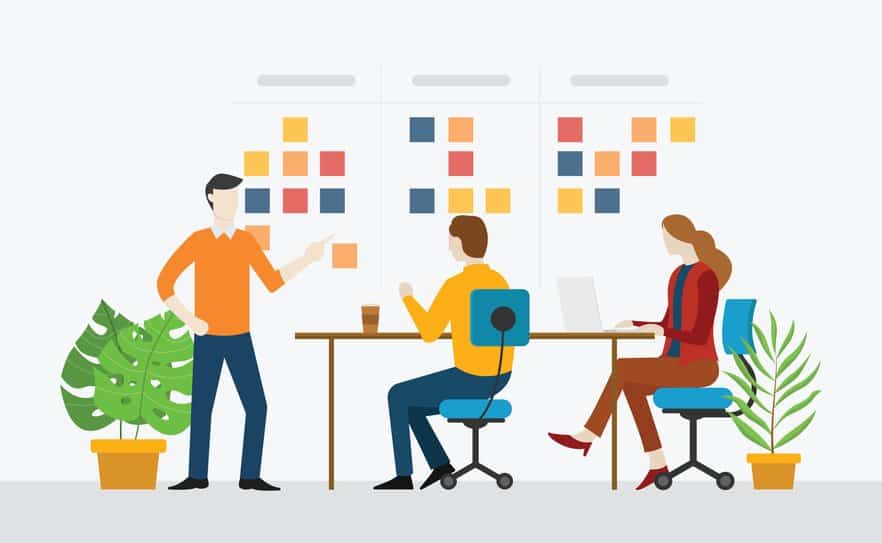A new study on utilising the Lean Startup Framework

Lean start-up is a popular framework that uses an iterative process of quick cycles of product development followed by real life user feedback to make the product better and find out how customers are using it, so that, when the product or service finally hits the market, it is both desirable and has a high market fit.
Lean Start-up Framework
Lean start-up is a popular framework that entrepreneurs use to create business models to help their businesses grow into successful ventures.
The intention behind the framework
The intention behind the framework is to reduce waste and to speed up product development and market fit. Lean start-up uses an iterative process of quick cycles of product development followed by real life user feedback to make the product better and find out how customers are using it, so that, when the product or service finally hits the market, it is both desirable and has a high market fit.
This process avoids the common mistake where entrepreneurs may take years to develop a product, only for the product to fail when it reaches the marketplace. The lean start-up method also allows businesses to pivot at an early stage based on market feedback if the original offering was flawed or is better suited to a different market segment.
Many entrepreneurs, therefore, choose lean start-up framework whilst designing their business models and products from the outset.

Previous Research on lean start-up
Previous studies looking at different aspects of the lean start-up framework have found that:
- This form of hypothesis driven experimentation is essentially the scientific method applied to business.
- Using the framework leads to a continuous innovation system that many larger organisations would do well to learn from.
- The process is also useful for strategy formation.
- As a user driven innovation process, the lean start-up methodology has close ties to design thinking.
A new study on lean start-up framework
A new study by researchers from the University of Notre Dame in the USA and the Ecole Polytechnique Federale de Lausanne in Switzerland has looked at the lean start-up framework to identify what can be learned that would be of use to entrepreneurs.
Findings on lean start-up framework
The study found that:
There are 5 building blocks that the lean start-up framework is based on:
- Finding and prioritising market opportunities. Entrepreneurs must decide “where to play” or which market opportunities to pursue that will potentially create the most value and have the most longevity.
- Designing business models. Designing an effective business model that contains action plans to help entrepreneurs determine “how to play” or how their organisations should function within the industry is the second critical building block.
- Validated learning. At the heart of the process is a structured experimentation process, which requires a strong evidence-based learning orientation.
- Building minimum viable products. Entrepreneurs create cheap prototype products and services that require a minimal amount of effort and resources, so that they can test the hypotheses from which they can start developing and iterating, based on a build-measure-learn loop.
- Persevere-or-pivot with course of action. At any stage and based on feedback from the market, the entrepreneur is trying to work out whether to:
● continue or
● pivot, either by changing the product, re-positioning it, changing the business model or some other action.

The study also found that:
- Whilst entrepreneurs are finding new market opportunities and choosing which ones to prioritise, they should also be on the lookout for even better opportunities and should be prepared to jump to a new endeavour. Many entrepreneurs hang on to ideas too long.
- As entrepreneurs move on to designing their business models, they should consider:
- The impact of the influence of co-founding partners and other stakeholders. It was found that business model innovation was the least tested part of the process.
- How to incorporate innovative technologies to increase business performance and improve the start-up’s overall progress.
- Whilst testing hypotheses about the business model’s effectiveness through validated learning or experimentation, entrepreneurs should:
- Be prepared for their hypotheses to be disproven. Often, they are trying to prove the model, rather than trying to break it.
- Be aware of confirmation bias, or the tendency to interpret experiment results as supportive of pre-existing beliefs.
- Be ready to start over from scratch and develop a new model or hypothesis that addresses questions like “if we find a solution to this customer problem will they purchase it from our organisation?”.
- Identify and test assumptions; this is a critical part of the process.
- When entrepreneurs begin creating their first prototypes, or early versions of the minimally functional test product, they should:
- Keep in mind that minimum viable products or prototypes are designed to help them learn and measure a product’s potential success whilst conserving resources, so extra features should be removed at the early stages, the idea is to be data / evidence driven, rather than gut feeling driven.
- The product needs to be easily shareable with customers and understandable to ensure that received feedback is relevant to the developmental process and can be utilised to improve the next iteration of the product.
- When entrepreneurs arrive at a “fork in the road” and must decide whether to persevere with the currently established business model and product version based on feedback about the last prototype, or pivot in an entirely new direction, they should:
- Initially establish learning milestones or developmental goals for the start-up that need to be met to continue on a specific path. This can also trigger a needed pivot in another direction when those milestones are not met to keep the organisation moving forward.
- Continuously assess whether their current model and products are improving the start-up organisation’s progress or leading them to a dead end to avoid wasting resources and potential failure.
Reference
Data Driven Decision-making And Lean Six Sigma
Be impressively well informed

Get the very latest research intelligence briefings, video research briefings, infographics and more sent direct to you as they are published
Be the most impressively well-informed and up-to-date person around...
